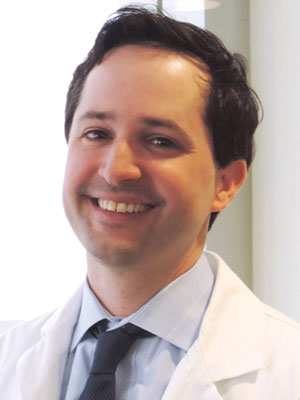Peter C. Grayson, MD, MSc

Peter C. Grayson, MD, MSc, is the founder and principal investigator of the Translational Program in Vasculitis at the National Institute of Arthritis and Musculoskeletal and Skin Diseases (NIAMS), established in 2013, and is the associate program director of the NIAMS Rheumatology Fellowship Training Program. Dr. Grayson completed his VCRC Fellowship (2009-2011) at Boston University Medical Center, with Peter A. Merkel, MD, MPH, as his mentor. Dr. Grayson serves as the representative to a major international collaboration to develop novel diagnostic and updated classification criteria in several forms of systemic vasculitis. His research focus includes biomarker discovery and development through gene expression profiling and other genomic techniques, disease classification, clinical epidemiology and immunology, and clinical trials in vasculitis.
This interview with Dr. Grayson was conducted by the Vasculitis Foundation, June 2013.
Lawrence Shulman Scholar in Translational Medicine, National Institute of Arthritis and Musculoskeletal and Skin Diseases, Bethesda, Maryland
“Too often research in the lab is isolated from what’s happening in the clinic, and it can take a very long time for discoveries to get translated into practical use,” notes Peter Grayson, the newly appointed Lawrence Shulman Scholar in Translational Medicine at the National Institute of Arthritis and Musculoskeletal and Skin Diseases.
Grayson is determined to change that. Translational research puts scientific discoveries from lab, clinical and population studies to use in clinical applications that directly improve patient care.
“This kind of research creates synergy and is powerful,” he notes. “My goal is to make an immediate impact towards improving the quality of life for people living with vasculitis and finding cures for these diseases.”
A rheumatologist, Grayson studied history at Brown University before returning to his hometown of Charleston, SC to attend the Medical University of South Carolina. He got his degree there in 2004; he did his internship, residency, chief residency and rheumatology fellowship training at Boston University. Grayson joined the faculty there in 2012 as an assistant professor.
“I chose this specialty because the most interesting and rewarding experiences I had as a medical student involved the care of patients with rheumatologic diseases,” he says. “Rheumatologists deal in uncertainties, and we see some of the most unusual cases in medicine. Oftentimes, we can’t provide a specific diagnosis because one simply does not exist. In those situations, many doctors elect not to initiate therapy—a good rheumatologist learns how to conscientiously care for a patient in the face of uncertainty. The most rewarding aspect of the job is helping improve the lives of patients with chronic diseases.”
Grayson is interested in whole-genome gene expression profiling made possible by bioinformatics, the acquisition, analysis and interpretation of large volumes of biological data. The goal of this emerging field of study is to discover novel aspects of disease.
“We’re able to study what’s happening at the molecular level inside specific groups of cells by profiling the expression of 30,000 genes simultaneously within those cells,” he explains. “It will redefine what we know about vasculitis and other diseases over the next few decades.”
Grayson hopes his new position at the NIH will create opportunities for vasculitis patients to participate in the institute’s cutting-edge research.
“The original clinical trials that established the first life-saving therapies for vasculitis were conducted at the NIH in the 1970’s,” Grayson explains. “Unfortunately, there’s been minimal investigative work in vasculitis at the NIH in over a decade. Hopefully, my presence there will revive research interest in these diseases. The NIH has tremendous resources which I intend to use to advance understanding of vasculitis, to improve the lives of patients with vasculitis, and to potentially find cures for these diseases. I hope many patients with vasculitis will be motivated to visit the NIH and participate in our research.”

